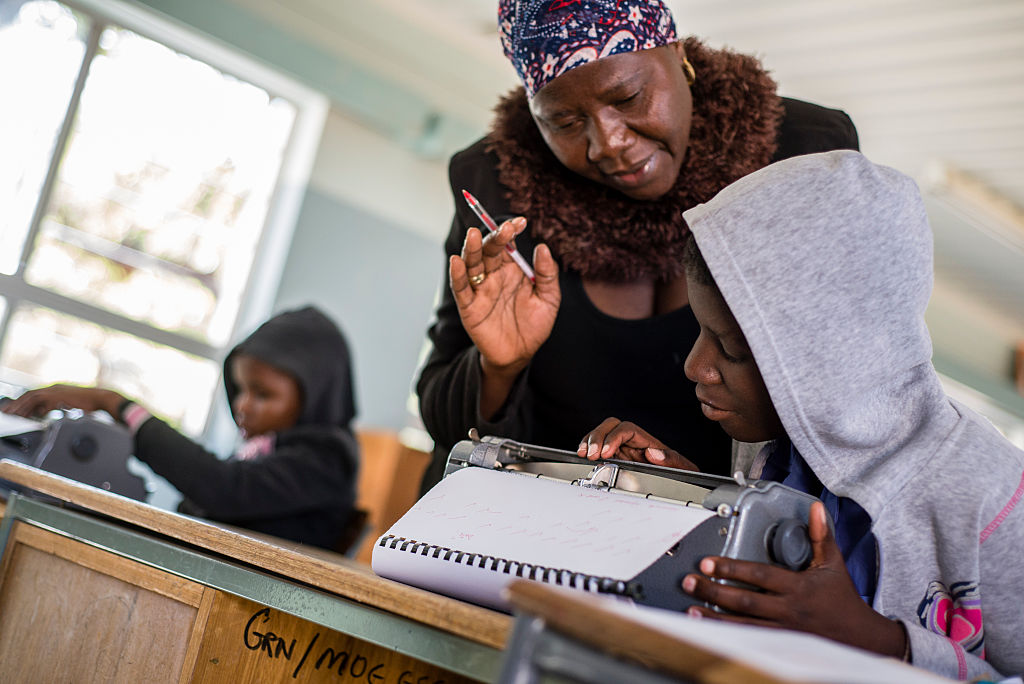
Toxic stress in war zones is harming development of millions of young children
Childcare, Children in conflicts, Children with disabilities, Early childhood development, Education in emergencies, Refugees and internally displaced people, Safe schools
With the conflict in Syria about to enter its seventh year, huge numbers of young children there and in other war zones are experiencing trauma that could affect the rest of their lives.
Millions of children around the world have spent their whole lives in a war zone – more than 3.7 million of them in Syria alone.
Often denied proper nurturing, love and care, their emotions are constantly on high alert. They are anxious, frightened and, in many cases, cold and hungry.
It is all they have ever known. They are suffering from “toxic stress” – prolonged exposure to high levels of stress from trauma, violence, neglect or deprivation.
It can prevent or slow the healthy development of the brain and that can have massive effects on the rest of a child’s life. A child’s brain is 90% developed by the time they reach five years old – so the implications for children living through conflict can be devastating.
Without interventions at this critical stage, these may never reach their full potential. They will have an increased risk of illness, depression and substance abuse – and their future behaviour and relationships could be affected.
“The experiences of Syria’s war-affected children could lead to a generation of children experiencing long-term mental health, social and economic problems’, said Alison Schafer, a mental health psychological support specialist with the charity World Vision.
Theirworld’s #5for5 campaign has been calling on world leaders to invest in early childhood development. That includes ensuring humanitarian emergency responses cover the need to care for, nurture and protect babies and toddlers – and particularly those with disabilities and the most marginalised groups of children.
In September we published a report called Safe Spaces: The Urgent Need for Early Childhood Development in Emergencies and Disasters. Today Theirworld has produced a new briefing document about toxic stress.
Read the briefing here

The global toxic stress problem is critical, with more than 16 million babies born in conflict zones in 2015 – one in eight of all births worldwide.
The Syrian conflict will be six years old next month. On its fifth anniversary, UNICEF said one in three children in the country – almost 3.7 million – had been born since the fighting began.
World Vision has heard from children who have escaped ravaged cities like Aleppo. They talk about witnessing and being victims of violence, losing parents and loved ones, and being displaced.
Alison Schafer said: “Children also tell us about the daily challenges they face living with those who love them, who are themselves dealing with personal experiences of war and displacement and unable to be as supportive or loving as they once were.
“These ongoing stresses can have strong and lasting effects on children’s socio-emotional well-being and their growing brains.”
The Syrian crisis has impacted a vast number of children. More than three million are in need of humanitarian aid in Syria and more than one million child refugees are now living in Turkey, Lebanon, Iraq, Egypt and Jordan.
Without adequate intervention and the presence of protective and caring relationships, Syria’s war could have a lasting impact on young children’s learning abilities, memory, social interactions, stress and fear responses, as well as their ability to control emotions.
In Turkey – which is hosting more than 1.2 million Syrian refugee children – better access to mental health care can help young children and improve school retention rates.
Maya Vakfi is providing a community-wide model support system to prevent Syrian refugee children from becoming “The Lost Generation.”
Its team of trained psychologists work with Turkish teachers to help them understand how trauma affects children’s ability to learn as well as there ability to stay in school. Teachers are also trained in how to best support and teach children affected by the conflict.
Yemen is another war-torn country where young children are experiencing toxic stress. The ongoing conflict has displaced about 2.4 million people and another 12.4 million people live in the conflict-affected areas. Intense fighting has made it difficult for humanitarian organisations to deliver aid.
Trauma is the emotional, psychological, and physiological residue left over from heightened levels of toxic stress that accompanies experiences of danger, violence, significant loss, and life-threatening events. Young children are particularly vulnerable to the effects of trauma. Zerotothree
The war has killed nearly 7000 people, mostly civilians, says the United Nations. The conflict and a blockade imposed by the Saudi-led coalition has triggered a humanitarian disaster, leaving millions of people homeless and hungry and 80% of the population in need of aid. Nearly 2.2 million children in Yemen are acutely malnourished and require urgent care.
Toxic stress can take a cumulative toll on a child’s physical and mental health for a lifetime.
Scientists at the Center on the Developing Child at Harvard University said: “The more adverse experiences in childhood, the greater the likelihood of developmental delays and later health problems, including heart disease, diabetes, substance abuse and depression.”
Figures from UNICEF, the UN children’s agency, show that globally one in 11 children aged six or younger has spent the most critical period of their brain development growing up in conflict.
“In addition to the immediate physical threats that children in crises face, they are also at risk of deep-rooted emotional scars,” said UNICEF Chief of Early Child Development Pia Britto.
“Conflict robs children of their safety, family and friends, play and routine. Yet these are all elements of childhood that give children the best possible chance of developing fully and learning effectively, enabling them to contribute to their economies and societies, and building strong and safe communities when they reach adulthood.”
The new briefing by Theirworld on toxic stress says: “Science shows that the best way to combat or prevent the ill-effects of toxic stress on young children is a stable, supportive, and nurturing relationship with a parent or other committed adult such as a teacher.
“These types of relationships buffer the effects of stress, protect healthy development and foster resilience in young children.”
The briefing adds: “It is therefore essential to also have Safe Spaces – comprehensive early childhood development centres – that can provide children with access to a stable nurturing relationship with another adult, so that no children (or parents) are left to combat stress alone.
More news

Technology has the power to expand education for children with disabilities
